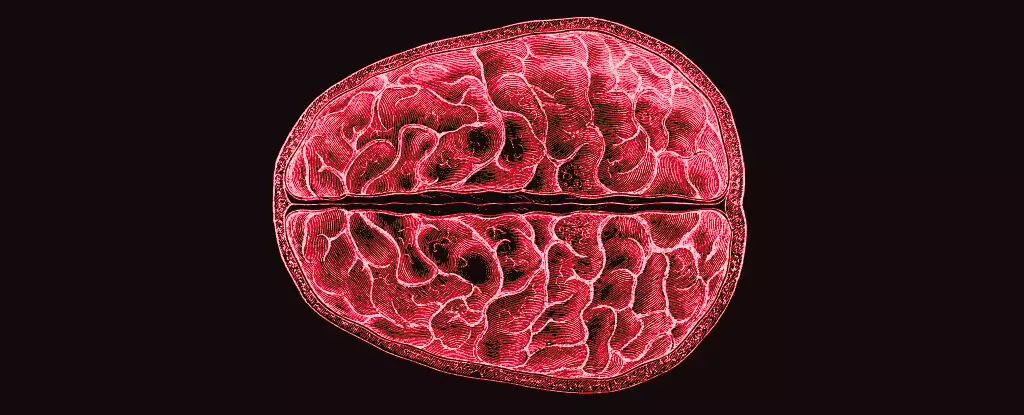The menstrual cycle is often viewed through the lens of biology—conceptions, fertility, and the physical changes the body undergoes. However, recent findings suggest that the cyclical hormonal changes occurring throughout menstruation extend far beyond the reproductive system, profoundly influencing brain structure and function. In a pioneering study led by researchers Elizabeth Rizor and Viktoriya Babenko at the University of California Santa Barbara, structural changes in the brains of 30 women were meticulously documented over the course of their menstrual cycles. This revolutionary approach sheds light on a largely overlooked aspect of women’s health, revealing how hormonal fluctuations can sculpt not only behavior but also the very architecture of the brain itself.
Dismantling Traditional Understandings
Traditionally, most medical and psychological research has focused on the immediate cognitive effects of hormonal changes rather than the structural alterations in the brain resulting from these fluctuations. Rizor and Babenko’s study breaks away from this conventional approach by exploring how hormonal changes impact both white matter microstructure and cortical thickness, suggesting that the brain’s wiring is not only adaptable but also intricately responsive to the hormonal ebb and flow experienced during the menstrual cycle. “Strong brain-hormone interaction effects may not be limited to classically known hypothalamic-pituitary-gonadal-axis (HPG-axis) receptor-dense regions,” the researchers noted, emphasizing an expansive view of how hormones may influence various brain regions.
This is groundbreaking—as it encourages a reevaluation of how we understand menstrual health. For years, menstruation was shrouded in stigma and ignorance, and crucially, this lack of attention has likely fueled misunderstandings surrounding women’s mental health, particularly during the premenstrual and menstrual phases when various symptoms can become acute or even debilitating.
Revolutionary Insights from the MRI Study
In investigating the effects of hormones, Rizor and Babenko’s team utilized MRI scans taken during three key phases of the menstrual cycle: menses, ovulation, and mid-luteal. These scans coincided with measurements of the participants’ hormone levels, creating a detailed snapshot of how specific hormones correlated with structural brain changes. The findings were revealing; for instance, the hormone 17β-estradiol, which peaks just before ovulation, was linked to significant white matter changes. This suggests not just a direct biological function but also that the brain may operate more efficiently during this period.
Moreover, fluctuations in Follicle-Stimulating Hormone (FSH) and Progesterone indicated a complex relationship between brain structure and hormonal changes. Elevated FSH was associated with thickening gray matter, while the surge of Progesterone post-ovulation seemed to correlate with tissue increases but also a decrease in cerebrospinal fluid volume. Such findings raise questions about how these hormonal shifts could affect cognitive functions such as decision-making and emotional regulation.
Beyond Biology: Implications for Mental Health
Perhaps the most striking revelation from this research is its potential implications for understanding mental health issues that may be exacerbated by hormonal fluctuations. Many women experience psychological symptoms ranging from anxiety and depression to changes in mood tied to their menstrual cycle. By dissecting the structural changes in the brain that accompany these hormonal shifts, researchers are carving out a pathway to better comprehend these significant mental health challenges.
Could this new breed of research lead to improved interventions and therapies tailored to the cyclical nature of women’s lives? While it’s still early in this exploration, the foundational work paved by Rizor, Babenko, and their peers has opened the door to deeper inquiries into women’s mental health, further pushing for recognition of unique health experiences.
The menstrual cycle has historically been relegated to the shadows of medical exploration. However, empowered by studies like this, a renaissance in understanding how hormonal changes reshape women’s health—physiologically and psychologically—could lead to a more informed and empathetic approach toward women’s wellbeing. This research beckons a future where understanding the brain’s relationship with the menstrual cycle is not merely a curiosity but a focal point for potential breakthroughs in healthcare.


Leave a Reply